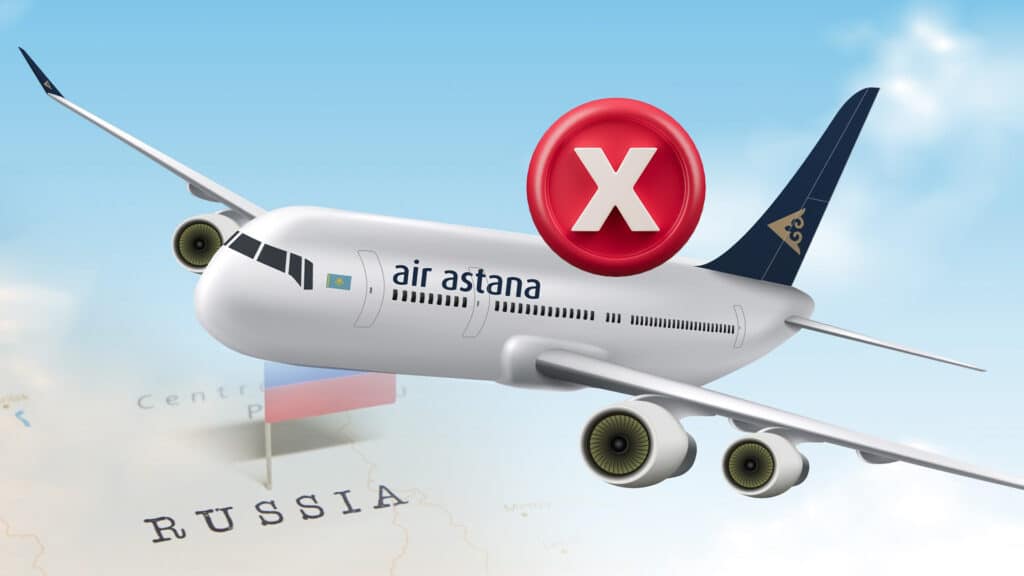Air Astana won’t restart flights to Russia after BAE Systems stake decreased

After the public initial offering (IPO) of Air Astana, the share of British BAE Systems dropped from 49% to 15.3% which won’t affect the airline’s suspension of air travel with Russia, according to the company’s CEO Peter Foster.
«In fact, the March 2022 decision to stop flights to, from or above the Russian Federation has nothing to do with the shareholder structure. This is related to the insurance of aircraft, carrying of flights to Russia, technical maintenance of aircraft in Russian airports and other technical issues. The company’s IPO doesn’t change anything,» he told Kursiv.media while addressing a question about the decrease of BAE System’s stake in Air Astana and the possible reopening of air travel with Russia.
Foster also said that the IPO allowed the two shareholders to capitalize on their stakes and raise $120 million for the further development of the company; the stocks were acquired by more than 60,000 individuals.
He also noted that no changes in the company’s management and the board of directors after the IPO are expected.
«We’ve got many questions from our investors. One of them was about whether the company, its management and its team would remain stable. During our roadshow, we proved consistency and stability in the company, its management and the board of directors. In other words, no, we aren’t anticipating any significant changes in our management or team,» he said.
Following the start of trading with Air Astana’s stocks on the KASE and AIX, the airline has summarized the results of its initial public offering (IPO). According to the company, the total number of orders for the stock surpassed its supply, thanks to the support of Kazakhstani and international investors.
More than half of the offering (58%) was placed on Kazakhstan’s market, while 42% of shares were offered to international investors on the London Stock Exchange (LSE). The Kazakhstan Stock Exchange (KASE) focused on common shares of Air Astana, while AIX traded with common shares and global depository receipts (GDR). (One GDR is equal to four shares.) Only GDRs were available on the LSE.
Total demand for the stock on Kazakhstan’s market surpassed $483 million, a 30.5% increase over the supply. Retail investors accounted for $216 million by submitting 60,000 applications; 53% of them were satisfied. This rate was 38% for domestic institutional investors, including the Unified Accumulative Pension Fund and 25% for international investors. According to the airline’s statement, all applications from retail investors below $30,000 were fully satisfied, while applications above this sum were partially satisfied. Consequently, 97.8% of retail investors’ applications were fully satisfied.
Air Astana reported that it raised $120 million as anticipated, while the entire size of the offering reached $370 million (after executing the option for additional offering). The current shareholders of the carrier, Samruk Kazyna and British BAE Systems, decreased their shares from 51% and 49% to 41% and 15.3%, respectively. After the IPO, the stock value of Air Astana was estimated at $847 million.
KASE accounted for three-fourths of the offering on the local market ($109.9 million), with the final price of the placement at 1,073.83 tenge per share ($2.40). During premarket trading that started on February 9, the stock’s price peaked at 1,275 tenge per share ($2.85). As the AIX reported, investors submitted $112 million worth of applications for GDRs and 49.6 billion tenge for shares ($110.8 million). As a result, investors bought GDRs for $71.6 million and 15.6 billion tenge ($34.8 million). More than half of the investors on the AIX who purchased the stocks were retail investors (56%). Standard trading with the stock commenced on all three exchanges on February 15.

